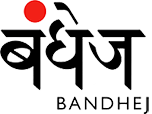
HANDCRAFTED, Sustainable Fashion
Currency

Dr. Ismail Khatri's Story

I have known Ismail since 1977 when I first stayed with his family for two weeks at Dhamadka, we were both teenagers. Over the years, I have collaborated with him to create fabric collections for my clothing company, Bandhej and am very happy to have followed his outstanding achievements and success. Ismail is Mohammadbhai Siddhikbhai’s son, and today he is one of the most famous block printers in our country. He was awarded the honorary degree of Doctor of Arts in 2003 by the De Mortfort University, Leicester, UK, for his deep knowledge of his tradition and craft processes.
In the conventional sense, Ismail is an uneducated craftsman. He studied up to class seven at a Gujarati medium school, in Dhamadka village. He wanted to study further but family commitments did not allow him to pursue his education, which was not considered essential in those days, although his father, Mohammadbhai had made it a point to teach all his three sons about their traditional craft.
He became a remarkably skilled printer, and learnt everything he could about the process of printing, including how to carve the wooden blocks used for the process. Ismail had always been driven by a sense of curiosity. So apart from his desire to learn more about his forefathers, their history and their traditional craft, he also developed an interest in reading Ayurvedic manuals and old texts about herbs and medicinal plants. This knowledge of traditional herbs proved very helpful in his work as a dyer, and he experimented with herbs, barks and minerals to create new shades and colours for dyeing and printing.
Many scholars who wished to document the traditional craft of Ajrakh, approached Ismail for information, in the course of their research. Soon, he learned to speak English, and his interaction with various visitors (on whom he practised his spoken English) helped him to improve his own communication skills. Over the years, many scholars have worked on their PhD theses with Ismail as their main source of information, and many short documentary films have been made about ajrakh and block-printing at Dhamadka with Ismail as the chief consultant.

De Mortfort University recognised Ismail’s contribution to the work of many of their research fellows in Kutch and decided to honour him. They invited him to the university where a panel of professors interviewed him in an open forum, and then decide how to honour him. He was given a brief and a week’s time to prepare for this. Research scholars whom he had helped over the years coached him so that he could express himself articulately in English. He once told me, ‘Even if I am woken up from my sleep and questioned about my craft I would be able to answer.’ So language was the only issue.
During his formal interview, he performed very well. As a practising craftsman, his confidence was evident, as was his mastery of the subject. The jury was suitably impressed with his deep understanding of his traditional skills and craft, and they unanimously decided to award him an honorary doctorate.
Ismail has passed on his knowledge to his two sons and today, both Sufian and Junaid have expanded their block printing business and are known for good quality Ajrakh printing. They are often invited to demonstrate their craft at many national and international events.










